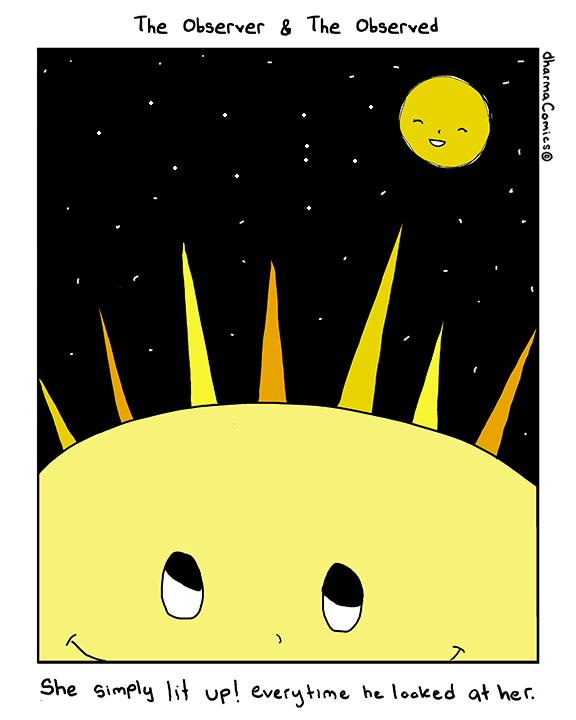Awareness is Profound Interest

IMAGE OF THE WEEK

The man who wants to improve himself can never be aware, because improvement implies condemnation and the achievement of a result; whereas in awareness there is observation without condemnation, without denial or acceptance. That awareness begins with outward things, being aware, being in contact with objects, with nature. First, there is awareness of things about one, being sensitive to objects, to nature, then to people, which means relationship; then there is awareness of ideas. This awareness - being sensitive to things, to nature, to people, to ideas- is not made up of separate processes, but is one unitary process.
It is a constant observation of everything, of every thought and feeling and action as they arise within oneself. As awareness is not condemnatory, there is no accumulation. You condemn only when you have a standard, which means there is accumulation and therefore improvement of the self. Awareness is to understand the activities of the self, the 'I', in its relationship with people, with ideas, and with things.
That awareness is from moment to moment, and therefore it cannot be practiced. When you practice a thing, it becomes a habit, and awareness is not habit. A mind that is habitual is insensitive, a mind that is functioning within the groove of a particular action is dull, unpliable; whereas awareness demands constant pliability, alertness.
This is not difficult. It is what you actually do when you are interested in something, when you are interested in watching your child, your wife, your plants, the trees, the birds. You observe without condemnation, without identification; therefore in that observation there is complete communion: the observer and the observed are completely in communion. This actually takes place when you are deeply, profoundly interested in something.
Reading above is excerpted from 'Choiceless Awareness 1', where Jiddu Krishnamurti answers the question, "What is the difference between introspection and awareness?"
SEED QUESTIONS FOR REFLECTION: How do you relate to notion that wanting improvement precludes awareness? Can you share a story of experiencing communion between the observer and the observed? How do you reconcile the practice of self-improvement with this author's criticism of it?